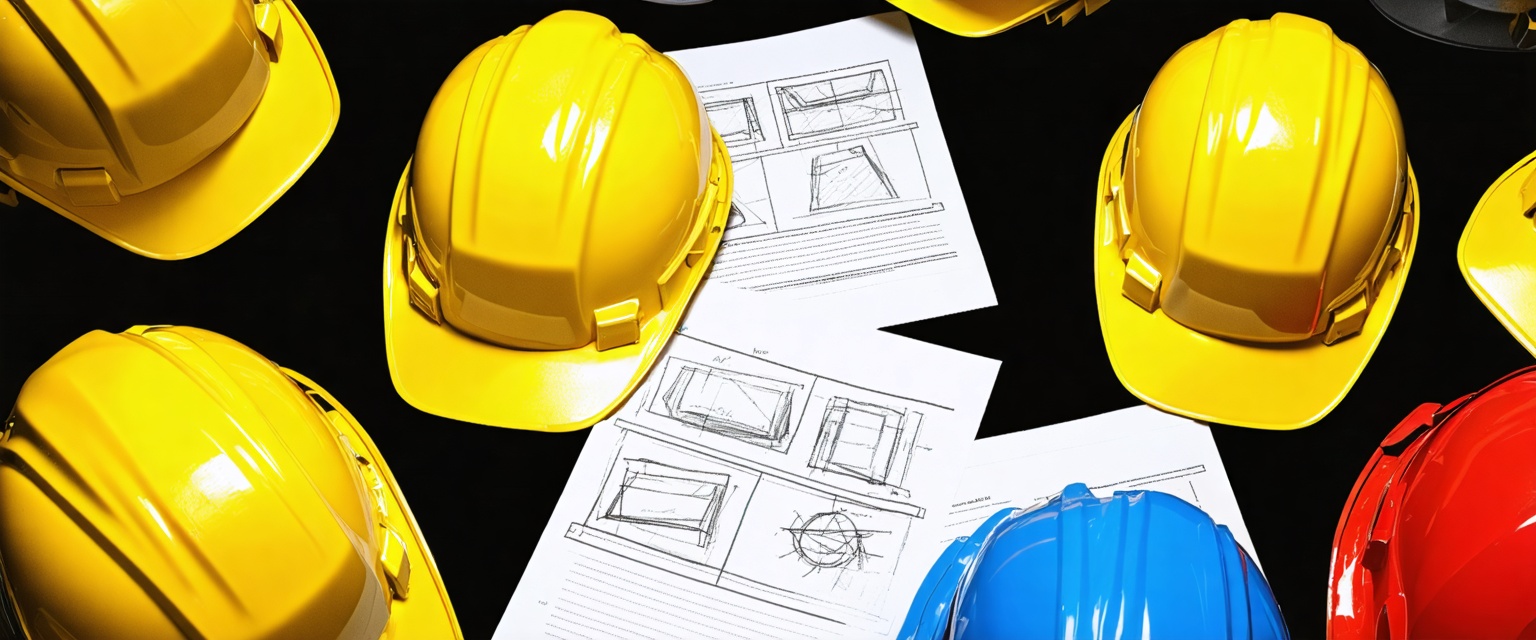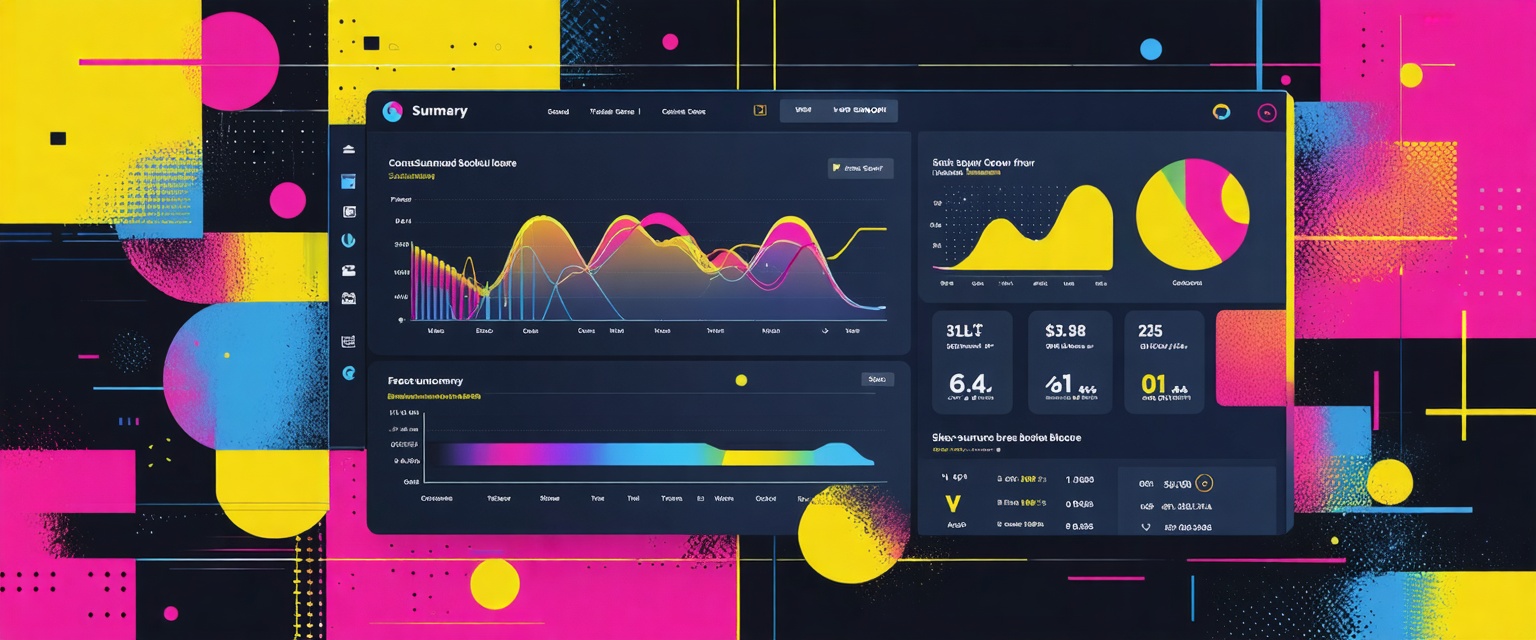This article was last updated on January 7, 2026.
Each project manager runs jobs differently. Documentation standards vary, communication protocols differ, and reporting formats are inconsistent across sites. Your company has invested years developing standard operating procedures for quality control and safety. These procedures work when followed. The problem isn't the SOPs themselves. It's ensuring they're executed the same way whether your best PM is running the job or your newest hire is learning the ropes.
This consistency gap costs construction companies far more than rework expenses. Inconsistent SOP execution creates unpredictable project outcomes, safety exposure, and quality issues that surface too late to correct without significant cost. Operations leadership already knows SOPs matter. The real challenge is enforcing them consistently across every project, every superintendent, and every trade partner.
Why Construction SOP Enforcement Breaks Down
Construction SOPs fail to achieve consistent execution for predictable reasons:
- Schedule pressure overrides documentation. Field teams face pressure to maintain schedule, and documentation often becomes an afterthought when concrete needs to pour or steel needs to set.
- Junior PMs shortcut processes. They haven't internalized the reasoning behind each procedure step, so they bypass steps without understanding the downstream consequences.
- Superintendents juggle competing priorities. When managing three critical path activities simultaneously, inspection photos get taken late, forms get completed from memory, and quality issues get discovered during punch list instead of during the work.
- Safety execution gaps persist. OSHA's top violations (e.g., fall protection, ladder safety, scaffolding, PPE compliance) aren't citations for lacking written procedures. They're citations for failing to execute procedures that already exist.
- Institutional knowledge stays locked in heads. Your best superintendents know which spec requirements cause issues, which inspection points matter most, and which safety risks emerge at different project phases. But that knowledge doesn't exist in formats that scale across your organization.
According to a Dodge Construction survey, most large construction firms expect AI to provide competitive advantage, yet most companies are still experimenting with how to move from written safety procedures to consistent field execution.
How AI Agents Execute Construction SOPs
AI agents enforce SOPs by reading your procedures, watching your job sites, processing your documents, and automating your workflows. Here's how each capability works in practice.
Natural language processing enables AI agents to interpret SOPs contextually, understanding not just what a procedure requires but what it means in construction context. When your quality control SOP references "proper rebar spacing per structural drawings," an AI agent cross-references the actual structural specifications and monitors for compliance against those specific parameters.
Computer vision transforms passive camera feeds into active compliance monitoring. AI agents analyze site photos and video streams to identify safety violations, quality defects, and procedure deviations in real-time. Rather than discovering missing PPE during a site walk, superintendents receive immediate alerts when workers enter controlled areas without required equipment.
Document processing ensures the right information reaches the right people at the right time. AI agents extract requirements from specifications, cross-reference submittals against approved materials, and flag conflicts between drawing revisions before they become field issues.
Workflow automation orchestrates the entire process. This includes generating inspection checklists based on active work areas, routing documentation for appropriate approvals, escalating exceptions when defined thresholds are exceeded, and maintaining audit trails that demonstrate compliance without manual record-keeping.
AI Agents for Construction Quality Control
AI agents are delivering measurable quality control improvements across construction operations. The most impactful applications include automated inspection and defect detection, BIM optimization for clash resolution, compliance checking automation, and quality documentation workflows.
Automated inspection workflows ensure quality checks happen at the right time with the right documentation. AI agents can monitor construction activities and generate documentation based on applicable specifications, identifying defects and preventing workflow progression until required approvals are captured.
Defect detection through image analysis identifies quality issues during construction rather than after completion. Datagrid's Photo Inspections Agent analyzes progress photos that superintendents already capture, identifying workmanship problems (e.g., improper fastener patterns, missing components, installation errors) in real-time rather than during punch list reviews. This transforms passive documentation into active quality enforcement.
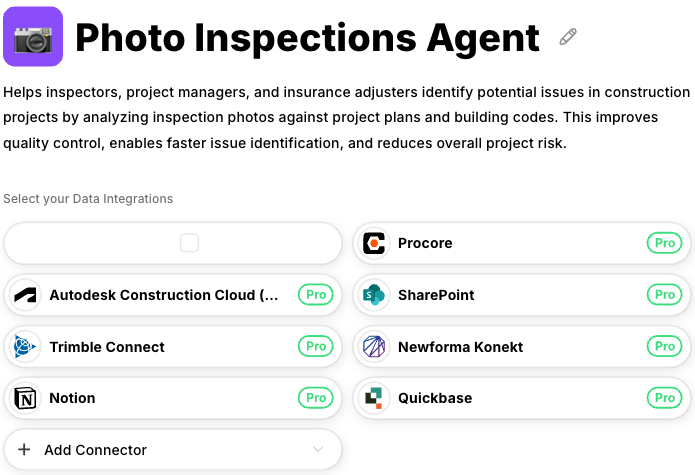
BIM coordination and clash detection has demonstrated particularly strong ROI. Industry case studies have shown significant cost avoidance on complex projects through AI-powered clash detection that identified design conflicts during preconstruction rather than during field installation.
Submittal review acceleration represents immediate productivity gains. Datagrid's Submittal Cross-Check Agent enables teams to significantly accelerate submittal reviews by automatically cross-referencing submittals against drawings and specifications, freeing project engineers to focus on exception handling rather than routine compliance verification.
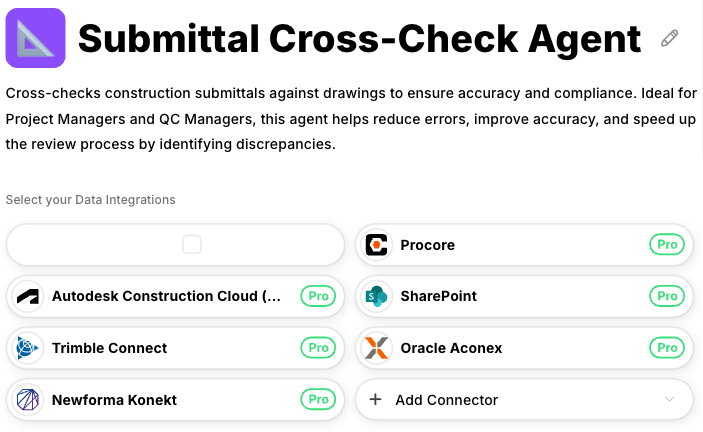
AI Agents for Construction Safety Compliance
Construction safety presents particularly compelling AI agent applications because the procedures already exist and the consequences of inconsistent execution are severe. OSHA's most cited violations (e.g., fall protection [29 CFR 1926.501], ladders [29 CFR 1926.1053], scaffolding [29 CFR 1926.451], fall protection training [29 CFR 1926.503], and eye and face protection [29 CFR 1926.102]) all involve procedures that most construction companies have documented but struggle to enforce consistently.
PPE monitoring through computer vision provides continuous compliance monitoring that manual supervision cannot match. Datagrid's Quality Control Agent integrates construction SOPs directly into field workflows, monitoring job site images against documented safety procedures and automatically flagging deviations before they become OSHA violations. When violations are identified, the system alerts supervisors immediately and documents compliance patterns for OSHA records. AI agents can improve PPE compliance through continuous monitoring that manual supervision cannot match.
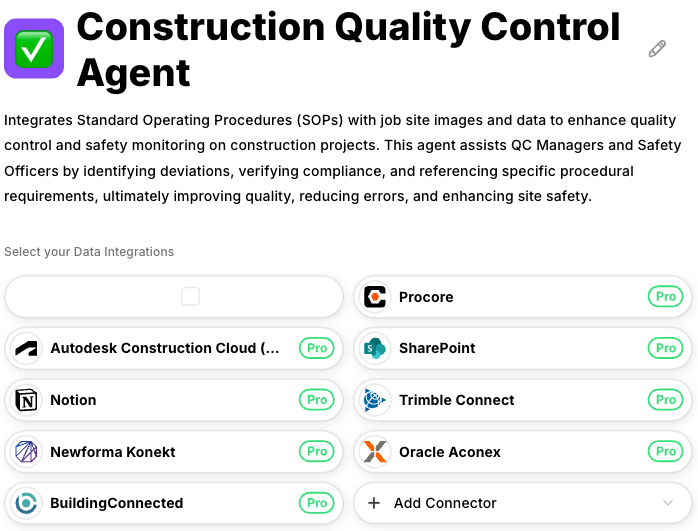
Fall protection surveillance addresses OSHA's #1 most frequently cited violation by monitoring worker proximity to unprotected edges, proper use of fall arrest systems, and scaffold assembly compliance. AI agents provide continuous monitoring that identifies violations before incidents occur.
Excavation and trenching safety benefits from AI monitoring of depth thresholds, spoil pile distances, and protective system presence. These requirements change based on soil conditions and excavation depth, exactly the kind of conditional logic that AI agents handle effectively.
Predictive risk analytics move safety programs from reactive to proactive. AI agents analyze incident reports, near-miss data, and environmental conditions to identify risk patterns before they result in recordable incidents. The financial impact extends beyond incident reduction. Companies implementing AI-powered safety systems may see improved risk profiles as carriers recognize lower incident rates.
Plan Your AI Agent Implementation for Construction SOPs
Successful AI agent deployment requires foundational work that many construction companies underestimate. The primary barrier isn't AI capability. It's data infrastructure. Construction companies typically operate five to ten disconnected platforms across project management, cost control, scheduling, procurement, and safety reporting. AI agents require connected data to function effectively.
System integration precedes AI deployment. Before AI agents can enforce SOPs, they need access to project data across your technology stack. This means API connections between your project management platform, BIM environment, scheduling system, and document management tools. Plan for six to twelve months of integration work before AI agents can operate at full capability.
Phased rollout reduces implementation risk. Begin with non-critical SOPs in controlled environments before expanding to safety-critical applications. This allows teams to validate AI agent accuracy, refine procedure definitions, and build confidence in automated enforcement.
Training accelerates adoption. According to McKinsey research, nearly half of employees would increase AI tool usage with formal training. For construction's field-based workforce with varying digital literacy levels, training effectiveness depends on practical, context-specific instruction that connects AI tools to daily work processes.
Datagrid's agentic AI platform addresses these challenges through integration capabilities with leading construction management platforms. The AI agents reason across connected data sources, execute SOP requirements automatically, and maintain the audit trails that quality and safety programs require.
Turn Construction SOPs into Enforced Quality Control Standards
Your company has invested in developing SOPs that work. The challenge has been ensuring they execute consistently across every project, every team, every day. AI agents transform that challenge by converting documented procedures into actively enforced operational standards. They deliver real-time monitoring, enable faster workflows, and reduce workplace incidents through automated compliance verification.
The technology has matured beyond experimental pilots. Major contractors are documenting measurable improvements in quality outcomes, safety performance, and operational efficiency. Industry associations including AGC and ABC have published comprehensive AI adoption guidance, signaling that AI-powered SOP enforcement is transitioning from competitive advantage to operational necessity.
Enforce Construction SOPs Consistently with Datagrid
Datagrid's AI agents turn your documented procedures into actively enforced standards across every project and team:
- SOP interpretation and monitoring: AI agents read your quality control and safety procedures contextually, then cross-reference them against actual project specifications to monitor compliance in real-time.
- Visual compliance detection: The Photo Inspections Agent and Quality Control Agent analyze job site images to identify safety violations, workmanship defects, and procedure deviations before they become costly issues.
- Submittal and document automation: The Submittal Cross-Check Agent accelerates reviews by automatically verifying submittals against drawings and specifications, freeing project engineers for higher-value work.
- Connected data across platforms: Datagrid integrates with leading construction management platforms including Procore and Autodesk Construction Cloud, ensuring AI agents can access project data wherever it lives.
- Audit trail maintenance: Every compliance check, flagged deviation, and approval workflow is documented automatically, giving you the records OSHA inspections and quality audits require.
Get started with Datagrid to transform your construction SOPs from written procedures into consistently enforced operational standards.


